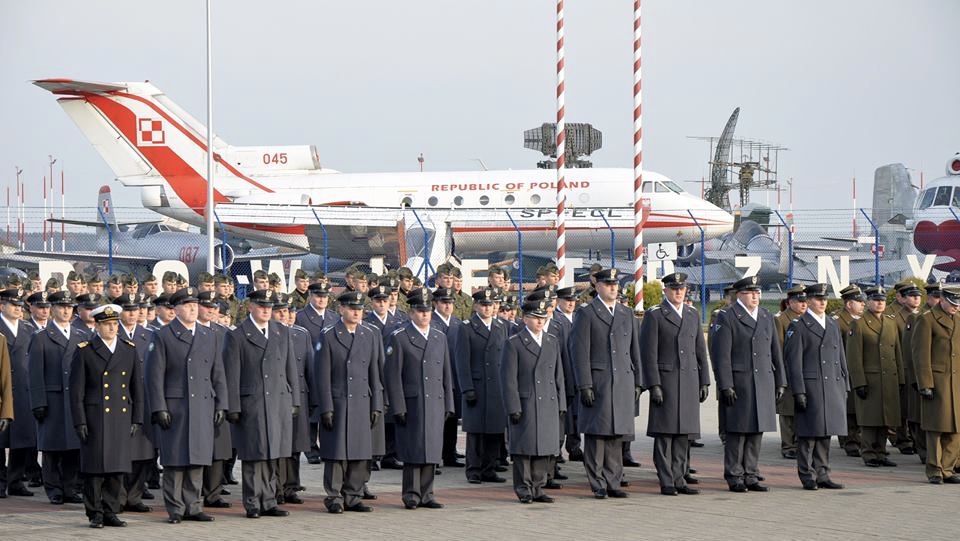What do you want to know about Independence Day in Poland Posted by Kasia on Nov 11, 2016 in Uncategorized
Today we honor veterans in USA. Today we also celebrate Independence Day in Poland (Święto Niepodległości w Polsce)! November 11th, Polish Independence Day, marks one of the most important holidays in the Polish calendar. It reflects on Poland’s struggle for independence (niepodległość) before and after WW2, oppression (ucisk) during the soviet-backed government as well as Poland’s newly found democratic ways in recent history.
In recent years, Polish Independence Day was overshadowed by gatherings of far right groups (skrajnie prawicowe grupy) and riots (zamieszki) between demonstrators and police, but let’s look at what Polish Independence Day is really all about.
The origins of Polish Independence go back to 1918, the year of Poland’s assumption of independent statehood (założenie niezależnej państwowości), after 123 years of partitions by Russia, Prussia and Austria. 1918 marked the end of WW1 and amid the confusion of revolution in Russia, the collapse of the Austro-Hungarian Empire and Germany’s defeat, Poland used its chance to re-claim its independence.
Rome wasn’t build in a day and neither was Poland. The process of independence was a lengthy and difficult one. A month ahead of Germany’s WW1 surrender, in October 1918, the Regency Council (Rada Regencyjna Królestwa Polskiego) dissolved the Council of State (German governmental body) and announced that it intends to restore Polish independence. The move for independence was supported by most political parties with the exception of the SDKPiL (Social Democratic Party of the Kingdom of Poland and Lithuania – Socjaldemokracja Królestwa Polskiego i Litwy). Two weeks later, the Regency Council appointed a new government under Józef Świeżyński and conscription into the Polish Army commenced.
November 11th was not chosen randomly as Polish Independent Day. On November 11th 1918, in Warsaw, Józef Piłsudski was appointed Commander in Chief of Polish forces by the Regency Council and asked to create a national government for the newly independent country. He only returned to Warsaw the day before from a 16 month stretch at a German prison in Magdeburg. On November 11th 1918, Piłsudski proclaimed an independent Republic of Poland. I have to say that I grew up hearing wonderful stories about Piłsudski from my amazing grandfather, who proudly served Poland in both World War I and II! He worked closely with Józef Piłsudski and I really enjoyed my afternoons stories after school with my dziadzio (grandpa), after making a batch of french fries together:)
Following several struggles and conflicts in various parts of the country, Independence was only constituted in 1937, however, celebrated since the 1920’s.
The newly created holiday however was a short-lived entry in the annual Polish holiday calendar. The holiday was removed with the Nazi occupation from 1939 – 1945 and only re-instated as a national holiday after the collapse of the soviet-backed regime in 1989. In the meantime, from 1945 and as part of the PKWN Manifesto, the holiday was replaced with the “Day of Rebirth of Poland” which was celebrated on July 22nd.
Major celebrations, attended by Polish State authorities, are held in Warsaw at Piłsudski Square. Sharply at noon, a ceremonious change of guards takes place before the Tomb of the Unknown Soldier.Patriotic gatherings and parades are held all over Poland. Churches celebrate masses with the intentions of the Homeland. Since 1989 every year several thousands of volunteers have taken part in the Race of Independence to commemorate the day.

Build vocabulary, practice pronunciation, and more with Transparent Language Online. Available anytime, anywhere, on any device.
About the Author: Kasia
My name is Kasia Scontsas. I grew near Lublin, Poland and moved to Warsaw to study International Business. I have passion for languages: any languages! Currently I live in New Hampshire. I enjoy skiing, kayaking, biking and paddle boarding. My husband speaks a little Polish, but our daughters are fluent in it! I wanted to make sure that they can communicate with their Polish relatives in our native language. Teaching them Polish since they were born was the best thing I could have given them! I have been writing about learning Polish language and culture for Transparent Language’s Polish Blog since 2010.





Comments:
Tim Talcott:
Thank you Kasia for the history of Polish independence. I’m in Krynica today and was interested in when Poland celebrated their independence. BTW… I too live in New Hampshire.